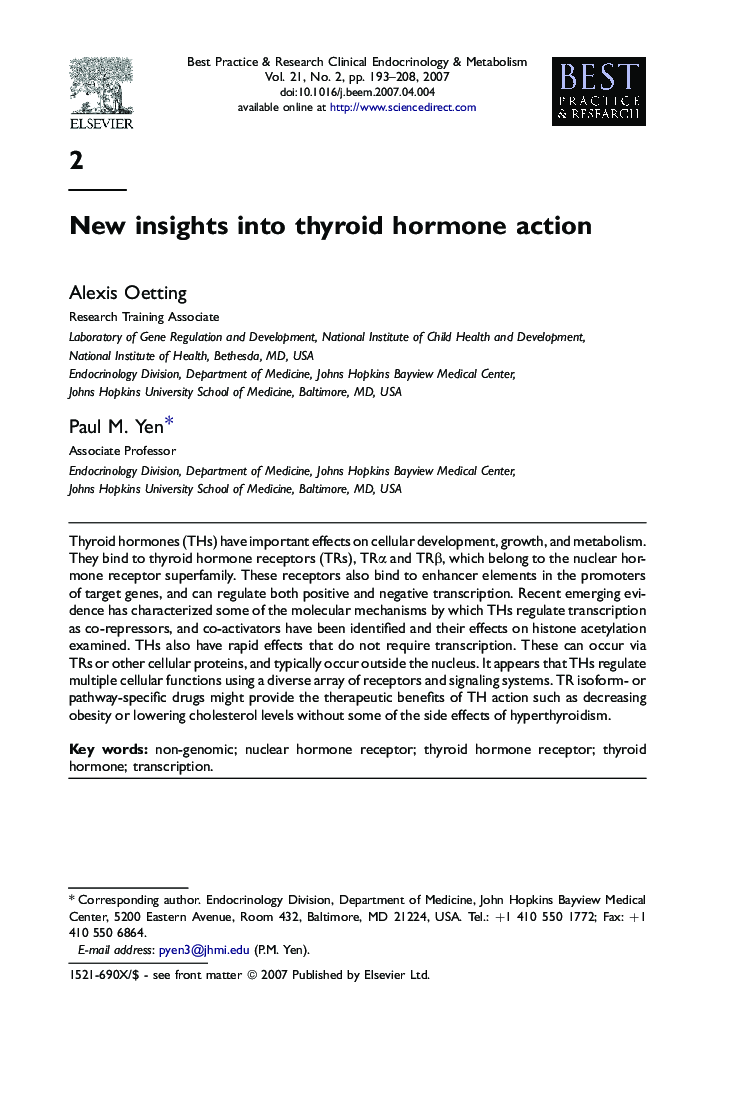| Article ID | Journal | Published Year | Pages | File Type |
|---|---|---|---|---|
| 2791924 | Best Practice & Research Clinical Endocrinology & Metabolism | 2007 | 16 Pages |
Thyroid hormones (THs) have important effects on cellular development, growth, and metabolism. They bind to thyroid hormone receptors (TRs), TRα and TRβ, which belong to the nuclear hormone receptor superfamily. These receptors also bind to enhancer elements in the promoters of target genes, and can regulate both positive and negative transcription. Recent emerging evidence has characterized some of the molecular mechanisms by which THs regulate transcription as co-repressors, and co-activators have been identified and their effects on histone acetylation examined. THs also have rapid effects that do not require transcription. These can occur via TRs or other cellular proteins, and typically occur outside the nucleus. It appears that THs regulate multiple cellular functions using a diverse array of receptors and signaling systems. TR isoform- or pathway-specific drugs might provide the therapeutic benefits of TH action such as decreasing obesity or lowering cholesterol levels without some of the side effects of hyperthyroidism.
